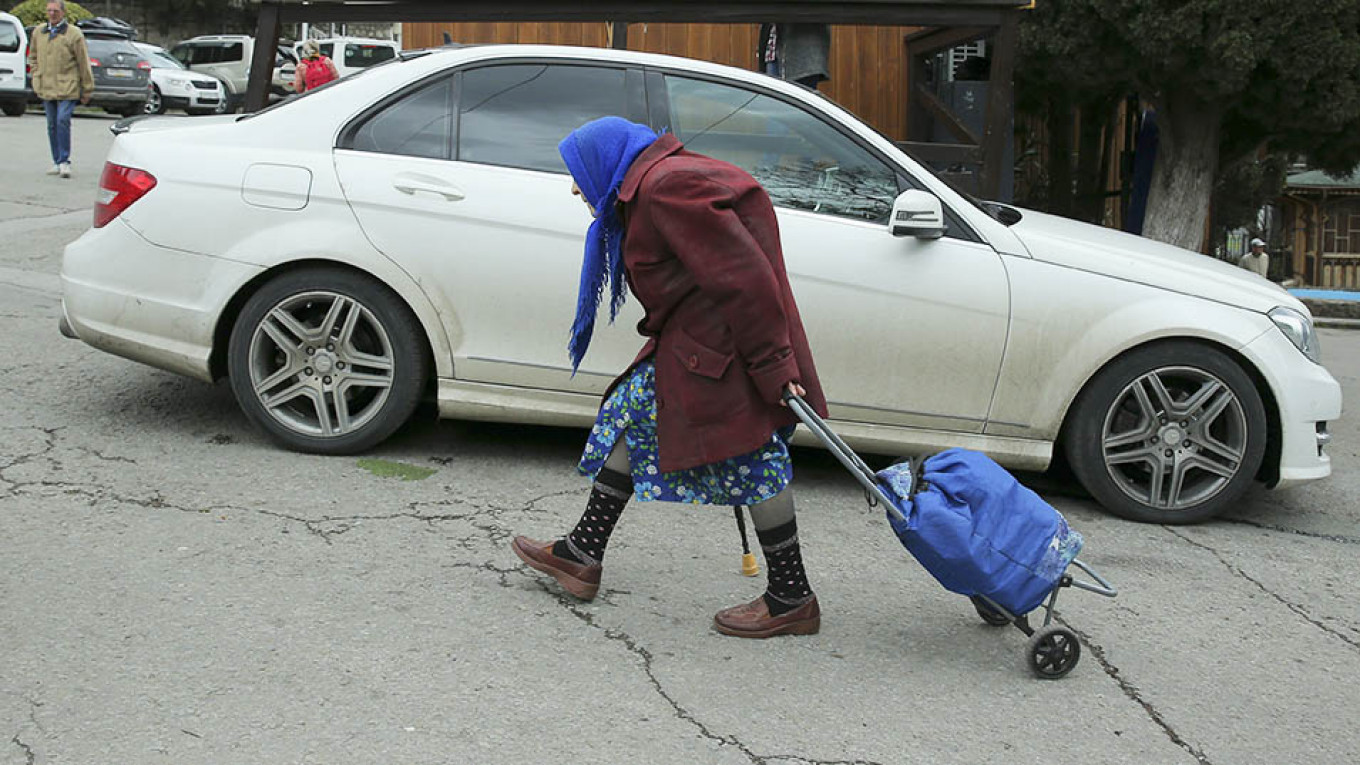
The number of Russians living below the poverty line has grown by half a million since early 2018, according to official data.
Western sanctions and falling oil prices over the past five years have led to a decline in real incomes and a rise in consumer prices. President Vladimir Putin is pursuing a national program on drastically reducing poverty by the time his term ends in 2024, aiming for 12% poverty rates this year.
Russia’s poverty rates totaled 14.3%, or 20.9 million people, in January-March 2019, according to Russia’s State Statistics Service (Rosstat). That’s up from 13.9%, or 20.4 million people, in January-March 2018.
“If the subsistence minimum grew commensurately with inflation, the share of the population with incomes below the subsistence minimum would remain unchanged,” Rosstat said.
Authorities set the minimum subsistence level for January-March at 10,753 rubles ($169), up from 10,038 rubles ($158) the previous year.
“When inflationary pressure increases, it’s the poor who suffer in the first place,” Alfa Bank chief economist Natalya Orlova told RBC.
In total, 18.4 million Russians, or 12.6% of the population, lived below the poverty line in 2018, Rosstat said.
